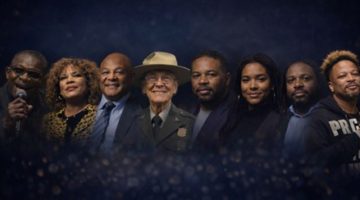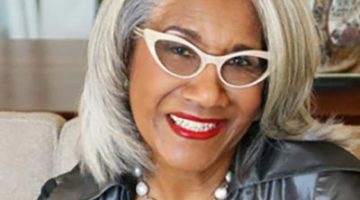There are still many good Americans, bless their souls, who were offended that the nation’s white leader dared to call a black woman, Omorosa Manigault Newman, who was the highest-ranking black in his administration, “that dog.” But there should have been no surprise.
President Donald Trump was right in character with his remarks, which are always just for his supporters. One report said many of them do not believe there is a red line that he cannot cross. The outrage should be directed, instead, to the fact that racism has been made fashionable, as scores of media reports indicate.
For instance, Army veteran Ernest Walker asked for and received a meal at a Chili’s in Cedar Hill, Texas, under the chain’s policy of offering free food to veterans on Veterans Day. While he was eating, with his service dog by his side, a customer wearing a Trump shirt went up and berated him. The manager said he could not be a real soldier because he was wearing his hat indoors. Walker produced his military ID but the manager still took away his food.
Also, employees at a Charlotte, N.C., Shell/Circle K filling station refused to allow 89-year-old grandmother Evelyn Redic to use the bathroom, forcing her to urinate on the grass outside. And a priest at St. Mary’s Catholic Church in Charlotte, Md., ordered mourners out of the sanctuary, where they planned to hold a funeral service, called police and went on a rant about “crackheads, prostitutes and thieves.”
As some observers have noted, racists are also using the police as their private security guards against blacks who, to them, look suspicious, including actor Ving Rhames, mistaken for the “large black man” who had supposedly broken into his home; Oregon State Rep. Janelle Bynum, while campaigning door-to-door for re-election; former White House staffer Darren Martin, while moving into his Upper West Side apartment in New York City; Memphis real estate investor Michael Hayes, while inspecting a house in need of repairs; and firefighter Kevin More, while conducting an exterior safety inspection of a home in the Oakland Hills neighborhood of California.
In Florida, a third-grade teacher at Carter G. Woodson school in Jacksonville called students “rats” that could “infest the class”
and “that’s why their race is either dead or in jail.” In Detroit, a businessman spit on the face of security guard Ibrahim Mission during a dispute over parking. A man in Rochester, N.Y., shoved Chase Coleman, 15, to the ground and said he feared the boy was going to mug his wife. Chase has autism and mostly does not speak. And burglars broke into the New Jersey apartment of New York Giants fullback Nikita Whitlock and left graffiti reading “KKK” and “Go back to Africa.”
Actresses Erica Walker, Brittany Marie and Asia’h Sharrell Epperson – a former finalist on American Idol and an actress in “Straight Outta Compton” and the TV series “Greenleaf,” were arrested at Houston’s restaurant in Atlanta for spending too much time in the bathroom – all of 10 minutes. An employee at a Coweta County, Ga., Subway called police on the Dobson family of eight who stopped for dinner, saying they looked as if they planned to rob the place.
At the Rochester, N.Y., University Preparatory Charter School for Young Men, valedictorian Jason Lovett was not allowed to give his commencement address. Employees at a Target in Southfield, Mich., accused Ashanae Davis, 20, of shoplifting a pair of bikinis. She was handcuffed, taken to a room and ordered to lift her shirt and pull down her pants. What she had in her bag was a swimsuit, with tags, that she had bought at another store.
Swimming is another popular scene for prejudice, as Shane Holland in Indianapolis, Jasmine Edwards and her family in WinstonSalem, N.C., and an unidentified teenager and his friends found out. They were all asked to leave pools where they had a right to be.
Prejudice is even in the air. A Delta Airlines flight attendant refused to allow Dr. Tamika Cross, a resident OB-GYN physician at the University of Texas at Houston, to attend to an unresponsive passenger but allowed a white male doctor to do so.
Back on the ground, Oumou Kanoute, a sophomore at Smith College in Boston, teaching assistant and summer residential adviser, was taking a lunch break when an employee called police because she “seemed to be out of place.” Kanoute later wrote on Facebook, “I did nothing wrong, I wasn’t making any noise or bothering anyone. All I did was be black.”
Which is no doubt the case for all who has faced racism. But you can be black and also be a voter. African American turnout in the mid-term elections could be decisive as to whether Republicans lose Congress — which would be a good start to giving meaning to outrage against racists and their enablers.










No Comment